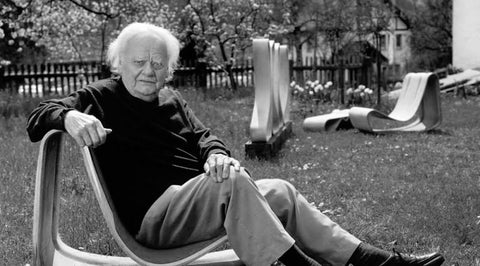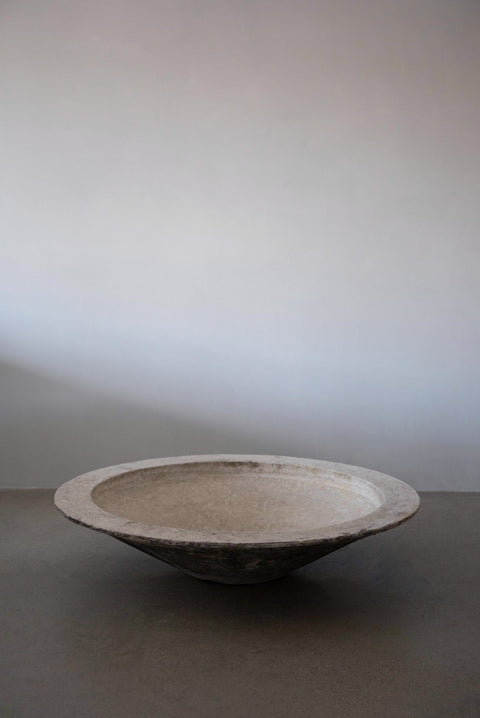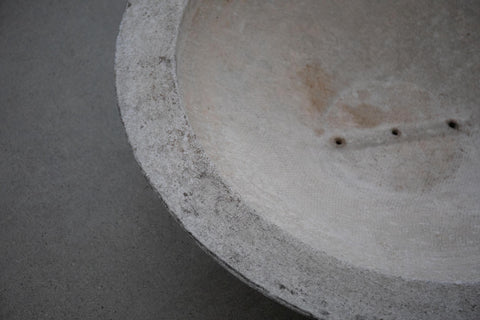
Willy Guhl
WILLY GUHL
(1915-2004)
Guhl was born in 1915 in Stein am Rhein and worked as a carpenter before beginning studies at the Zurich School of Applied Arts (known today as the Zurich University of the Arts), where he would go on to teach for nearly 40 years.
Guhl is well-known for his range of garden elements and outdoor furniture. He tended toward industrial materials, which he bent and shaped into organic forms for a striking juxtaposition. Much of his work is crafted from either concrete or Eternit, a mixture of cement and asbestos developed by the Belgian company Etex, which, in the 1950s, commissioned Guhl and his students at the School of Applied Arts to conceive planters in the material. The resulting vessels — some hourglass-shaped, some in the form of handkerchiefs — remain some of his most collectible pieces.
Guhl’s affiliation with the Swiss “neo-functional” movement centered on the idea of simplifying design without sacrificing form. According to Guhl, his mission was “achieving the most with the minimum of effort.”

